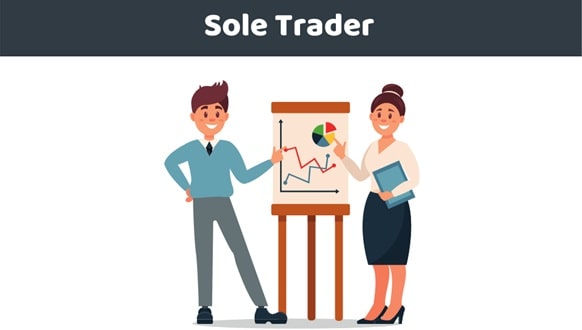You see, sole trading is nothing but when an individual person owns and runs a business single-handedly. That’s pretty much the whole concept of this sole trading thing. And if you really think about it, some benefits of this thing will pop right into your thoughts, but what about the other side of the picture? Yeah, without a doubt, there are some downsides to owning and running a business of your own, and that too on your own without anyone else’s help. If that’s what you are intrigued about then keep on reading because today’s post is all about the possible advantages and disadvantages of sole trading. Alright, here we go.
| Aspect | Advantages of Sole Trading | Disadvantages of Sole Trading |
|---|---|---|
| 1. Setup and Cost | Easy and inexpensive to set up. | Unlimited liability; risk of personal assets. |
| 2. Decision Making | Complete control over business decisions. | Limited access to capital compared to larger businesses. |
| 3. Flexibility | Flexibility in working hours and operations. | May lack expertise in various areas of business, leading to challenges in management. |
| 4. Tax Benefits | Eligible for certain tax deductions and benefits. | Challenges in expanding the business due to limited resources and expertise. |
| 5. Privacy | Privacy regarding business operations and financial information. | Sole responsibility for handling all aspects of the business, leading to potential burnout. |
| 6. Profit Retention | Keep all profits generated by the business. | Dependency on the sole trader for decision-making and operations, increasing vulnerability to risks. |
Advantages of Sole Trading

Let’s first get to the positive points about this sole trading thing.
1. You’re The Boss
When you’re a sole trader, you’ve got the whole show in your hands. You’re the one calling the shots, shaping your business just the way you want. This kind of independence is a big deal, especially in India, where the business scene is changing super fast.
2. All the Profits Are Just For You
Every penny you make after taxes? That’s all yours. You don’t have to split your earnings like in a partnership or a corporation. So, the more you put into your work, the more you’ll pocket, that’s pretty sweet, right?
3. Keeping Things Private, You Know?
Ever thought about how cool it is when you don’t have to tell the world about your financial secrets? Well, that’s exactly what you get with a sole proprietorship. Seriously, no need to disclose your money matters. This is a big deal, especially in India. People here really value their business privacy, and honestly, who wouldn’t?
4. Ease of Changing Business Structure
So, you’re starting out as a sole trader, and that’s totally fine. But what if things take off and you wanna switch things up a bit? Good news, it’s super easy! Changing from a sole proprietorship to something else isn’t a headache at all. Whether your business is hitting the big leagues or you just feel like trying out a new way of working, you’ve got the flexibility. Think of it like having an upgrade button for your business. Need more room to grow? Just hit the switch, and you’re good to go.
5. Easy-Peasy Setup and Running
Ever thought of starting a sole trading business in India? Well, it’s straightforward and not that complicated. Seriously, the setup is super simple, with just a few legal hoops to jump through. And yeah, running it day-to-day is just as easy. That’s why loads of folks find it a go-to choice.
6. Less Hassle with Paperwork and Taxes
Now, let’s talk about the nitty-gritty of tax stuff. If you’re running a sole trader gig, the tax filing is way simpler than dealing with corporate tax headaches. This means you’ll spend less time drowning in paperwork and more time doing what you love. Plus, who doesn’t wanna cut down on those admin headaches, right?
Disadvantages of Sole Trading
Okay, so now’s the time to take a look at things that might have not crossed your mind when thinking about sole trading in India.
1. Unlimited Liability
Okay, so the biggest risk when you’re going solo in business? That’s gotta be unlimited liability. What this means is, if your business gets into debt or legal issues, guess what? Your personal stuff like your house or car could be on the line. This is super important for anyone in India thinking of being their own boss.
2. Getting People to Take You Seriously
Now, if you’re running your own show in India, you might hit a bit of a hurdle with how people see you. It’s like this: in the Indian market, big companies are usually seen as the real deal. So, if you’re flying solo, you might find it a bit tough to grab the attention of some clients, especially the big fish who are looking for hefty contracts.
3. Everything’s On You
Here’s the thing, with total control comes total responsibility. You’re the one calling the shots, from handling the cash to deciding the big moves. That means the whole business is your baby, and yeah, that’s a lot on your plate.
4. Not Much Wiggle Room for Taxes
When you’re going solo, your tricks for playing smart with taxes are kinda limited, especially if you stack it up against big companies. This can be a bit of a bummer when you’re trying to get your financial game on point.
5. Tough to Take Breaks
When you’re running a business all by yourself, like in sole trading, it’s like you’re the heart and soul of every single thing happening there. Trying to take a break? Well, that’s a tough one, right? The whole business kinda leans on you being there.
6. Winning Trust & Building Image
Let’s talk about making a name for yourself. In a sole trading gig, it’s not a walk in the park to build up that professional reputation, especially in India, where how people see your business is super important. That’s a big challenge, no doubt about it.
7. Hard Time Getting Funds
You know how tough it can be to get your hands on some extra cash if you’re running the show alone. Banks and those big investors often see more risk in sole traders. So, what does that mean for you? Well, getting loans or funding isn’t a walk in the park, and even when you do, the terms might not be all that great.
8. Selling or Passing On? Not So Easy
Thinking about handing over or selling your one-person business? Here’s the thing, it’s kinda tricky. Why? Because your business is super tied up with who you are. It’s not just about the name on the sign; it’s your personal brand we’re talking about.
Conclusion
That’ll do it. Now you must be feeling a lot clearer in your head about whether or not this sole trading thing is for you. Right? But yeah, there certainly are some really beneficial sides to it which you can’t ignore.

Meet Suhas Harshe, a financial advisor committed to assisting people and businesses in confidently understanding and managing the complexities of the financial world. Suhas has shared his knowledge on various topics like business, investment strategies, optimizing taxes, and promoting financial well-being through articles in InvestmentDose.com


